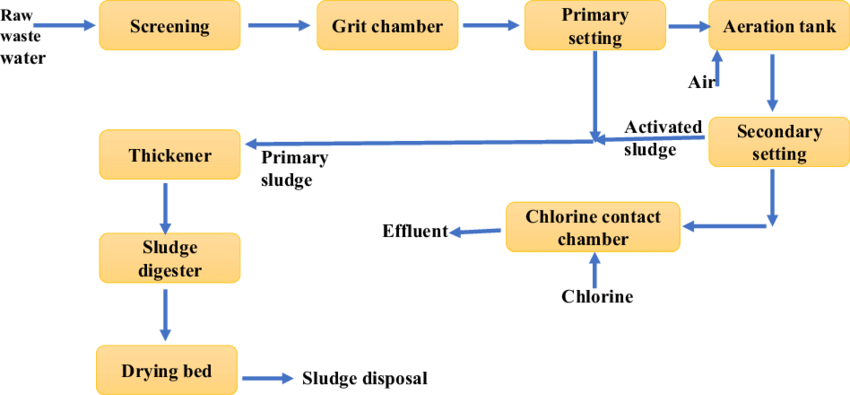The Greatest Guide To Reclaim Waste
Wiki Article
Reclaim Waste Things To Know Before You Get This
Table of ContentsThe Main Principles Of Reclaim Waste 4 Simple Techniques For Reclaim WasteThe smart Trick of Reclaim Waste That Nobody is DiscussingAn Unbiased View of Reclaim WasteThe Single Strategy To Use For Reclaim Waste
Residential sewer waste refers to the waste and products from a property septic storage tank. The proper administration and disposal of residential sewage waste need fluid waste to be transferred to a sewage therapy plant where the correct methods and devices are used to purify and dispose of waste.
Industrial waste usually includes prospective threats, such as flammable materials or a combination of fluid and solid waste products, and needs an advanced and detailed disposal process. The disposal of industrial waste commonly involves the filtration of waste before transport to guarantee safe and proper disposal. Hazardous waste is developed from byproducts and runoff of industrial processes and production.
This type of waste can not utilize the exact same sewage administration transport or procedures as septic or commercial liquids. The hazardous waste management process requires the assessment and testing of liquid waste prior to it goes through the disposal procedure (liquid waste removal melbourne). Runoff waste is the liquid waste that comes from runoff and excess stormwater in highly populated locations or cities
Overflow waste can trigger contamination and flooding if not managed appropriately. Discover more concerning sewage system cleansing and waste administration. Making certain correct waste monitoring can stop calamities and minimize environmental harm. Both individuals in residential setups and specialists in industrial or production industries can gain from recognizing the procedures and guidelines of liquid waste management.
About Reclaim Waste
Get in touch with PROS Providers today to find out about our waste management and disposal solutions and the correct methods to look after the liquid waste you create.(https://hearthis.at/leon-aube/set/reclaim-waste/)This supposed 'wastewater' is not only an essential resource however, after treatment, will be launched to our land, waterways or the ocean. Made use of water from bathrooms, showers, bathrooms, kitchen sinks, laundries and commercial processes is understood as wastewater.

water utilized to cool down machinery or clean plant and tools). Stormwater, a form of wastewater, is overflow that moves from agricultural and metropolitan locations such as roofings, parks, yards, roads, paths and seamless gutters right into stormwater drains, after rainfall. Stormwater moves neglected straight to regional creeks or rivers, eventually reaching the ocean.
A Biased View of Reclaim Waste
In Queensland, a lot of wastewater is dealt with at sewer therapy plants. Wastewater is transported from domestic or industrial sites through a system of sewers and pump stations, known as sewerage reticulation, to a sewer therapy plant. City governments build, maintain and operate most sewage treatment plants. Operators are licensed under the Environmental Protection Act 1994 to release cured wastewater at an appropriate ecological requirement into waterways.The Division of Natural Resources encourages city governments concerning handling, read this operating and maintaining sewage systems and therapy plants. In unsewered areas, local federal governments might need homeowners to install individual or household sewer therapy systems to treat residential wastewater from bathrooms, kitchen areas, shower rooms and laundries. The Division of Natural Resources authorises using household systems when they are confirmed to be efficient.
Many stormwater receives no treatment. In some brand-new class, treatment of some stormwater to get rid of litter, sand and crushed rock has started utilizing gross pollutant catches. Wastewater treatment takes place in four phases: Removes strong matter. Bigger solids, such as plastics and other items incorrectly released to sewers, are gotten rid of when wastewater is travelled through screens.
Wastewater then moves into big containers where solids work out and are eliminated as sludge. Oil and scum are skimmed from the surface. Makes use of tiny living organisms recognizes as micro-organisms to break down and eliminate remaining dissolved wastes and great fragments. Micro-organisms and wastes are incorporated in the sludge. Eliminates nitrogen and phosphorus nutrients that can cause algal flowers in our rivers and threaten water life.
The Main Principles Of Reclaim Waste
Nutrient elimination is not readily available at all sewer treatment plants because it calls for pricey specialist devices. Clear liquid effluent generated after therapy may still contain disease-causing micro-organisms - liquid waste disposal melbourne.
This typically means wastewater has actually to be dealt with or contaminants gotten rid of prior to it can be discharged to rivers. The majority of wastewater moves right into the sewerage system. Under the Act, neighborhood federal governments administer authorizations and licences for environmentally pertinent activities (Periods) including wastewater releases that may have a local influence. The department carries out approvals and permits to Periods involving wastewater launches that might have a local or statewide impact.
The Only Guide for Reclaim Waste
Surveillance gives factual information about water quality and can confirm that licence conditions are being met. The information obtained through monitoring provides the basis for making water quality decisions.Report this wiki page